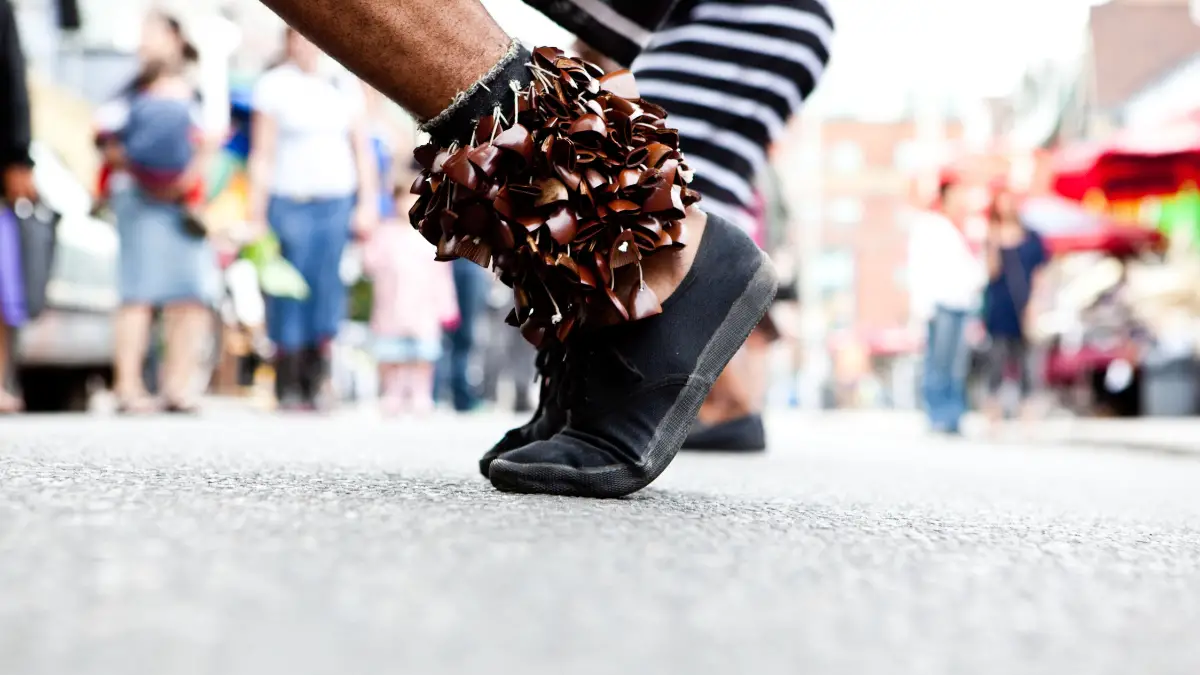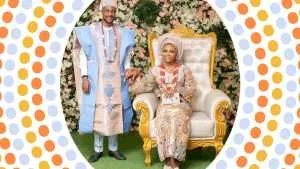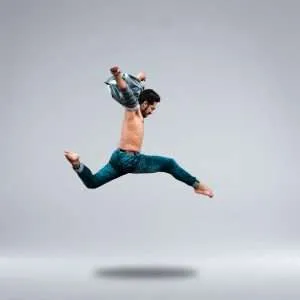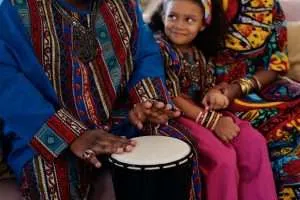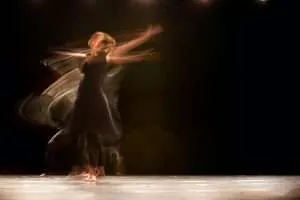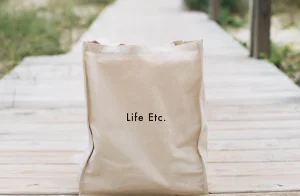CHRIS UGOLO, a professor at the Department of Dance and Choreography, University of Benin, Nigeria is the Editor of the National Theatre Monograph Series (NATMOS) of the National Arts Theatre of The Federal Republic of Nigeria. He is a much sought-after teacher of dance and renowned expert in African dance practice and education with countless cultural groups as a founder, which has metamorphosed into professional dance theatre companies including but not limited to the Christopher Ugolo Dance School, Nigeria, in this exclusive piece, he discusses Dance and it connection with Sociology with Applied Worldwide guest contributor, Chris Gonoh.
A Conversation with Professor Chris Ugolo
GONOH: Thank you for joining me today. So, Prof., I wanted to start with the question on why you considered studying, teaching and even subsequently carrying out researches on a field that is not popular in this part of the Academic community. Sometimes, our students are very much interested to listen to you talk on why this field or why this research? And maybe your journey too? So I am just also curious.
PROF. UGOLO: I am Chris Ugolo, a professor at the department of Theatre Arts, University of Benin, Nigeria. Fortunately, I am a graduate of this same institution. At a time I finished my first degree, I was awarded a scholarship in the United Kingdom (UK). A many person countered my choice of course; that is, going to the United Kingdom to do further studies on an underrated and unusual course. I insisted it was my calling. And I knew that I was not just going to do it for my self but for the world also. Successfully, I did my Masters’ and returned to Nigeria. That was when my academic journey started at the University of Illorin and later at University of Abuja. And eventually in 2014 at University of Benin, I became a professor of African dance and choreography.
GONOH: It is said that there are numerous set of dancers thus; those who have degrees, those who developed interest and later joined the field and those who are born into the profession let’s say, have the natural gift, which would you say are the best in skills, Prof?
PROF. UGOLO: There Is a professional association regarded as the Guild of Nigerian Dancers (GOND). It is a practice-eccentric organization. Personally, I am most concerned in the academic field. Although, I also practice. As an academia possessing degree(s), I am a researcher cum theorist. So, the theorists prescribes, then the practitioners exerts. There is none that is more important as one cannot do without another. Therefore, we work together for the development of Dance in Africa and in extension, globally.
Dance and Morality
GONOH: Do you think the theory of morality, a social construct should be accepted or is a logical fallacy as long as Dance is concerned?
PROF. UGOLO: Morality… Who defines morality? (All laughs).
GONOH: Well, sir we are living in the African space and as you are aware as a black staret and eminence, morals are very paramount.
PROF. UGOLO: In the African space, we have culture. And the culture Africans has is defined by what Africans considered to be good. So, if they create a Dance and then say, this is what we want to employ in it, I do not think others are in the right position to foil it. Yes; each society is developing at their own pace and we have several factors to that effect but every Dance has a cultural base being it the Cajun jig, Ballet e.t.c. It is the dance of a people with culture and it is their culture that delineate what they wear. So, we should not diffuse a particular value or lifestyle on another. For instance, Ballet which is westerns’—they wear short trousers clenching to their thighs—small and fitting closely to the body. Then, people begin to throw themselves at the issue of morality? Now if African dancers wears skirts and there are still parts left to cover up, then they wear a top—a short tied round piece—on their breasts and it makes the dance beautiful, then we should accept it—and accept all. We should not examine culture using the other end of a telescope—be it religious or ethnical.
Read: Sociology and Dance: Reflections on Bartenieff Fundamentals
Sociological Ideologies in Dance
GONOH: What are your ideologies that are interconnected with Sociology
Prof. UGOLO: Well, there has been quite a lot of publications from myself, and of course it is just something that is not unlike any senior lecturer who has attained my rank at any university you can mention. And when it comes to the view point of the society, it is always prevalent in my works. Dance is very central to Sociology. This is manifested in the multiplicities of fashion, mood, theme, character and over-all it ability in helping to tell a story. This is accomplished in the theatre through costume, music, props and good lightning. And one point is that, whether being in pure movements or un-concrete, postures or gestures characterizes symbols which has language value in the minds of the audience where it significance or definition can simply be told or understood. For instance, if it be social solidarity we want to conceptualize today to foster economic integration, national unity or socio-collaboration in form of Ubuntu or whatever downturn it is, Dance can be fundamentally employed to demonstrate and address the complexities of the modern world. In furtherance, it is widely known that the purpose of dance is communication. That is, the success of every dance production therefore lies in it ability to affect the minds of the audience. Interestingly, dance itself is therapeutic. So, this is one of the intrinsic roles that Dance play in every society. So, if a sociologist can be able to to give a profusion of details on suicide or depression, then a Dance expert can foster a remediation process through the communication value (message) delivery. And even right from the origin of human existence, Dance too has been used as a medium of education, entertainment, propagation of political and religious ideas and of course, heightening of cultural norms and values
GONOH: I am now abreast about the impact of movement on the mind. So do you think there is a bond between Sociology and Dance in academics and in what ways?
PROF. UGOLO: (smiles). There is a course called the Sociology of Dance and it looks at the whole roles Dance play in the society. Like I have said earlier, from the dance of a people, you can tell who they are. For instance, the most recent festival in Nigeria, the Igue festival of the Benin people gives an historical sense. The social values, order and culture of the people are totally evident in their Dance. The political or traditional hierarchy was felt; In groups -different classes, the farmers, chiefs and the Oba (King) made movements. This depict the society. It is also called stratification in sociology. That was why I mentioned that having a peep at the dance of a people, one can quickly pick the kind of people they really are, that is the traditional theater yet still. Even their economic life also reflects in the dance, they do.
Dance is More than Movement
GONOH: Do you think there is still more to Dance; as in utilizing it to communicate lessons or teach sociology or others in the classroom?
PROF. UGOLO: Absolutely. It is very clear from Aristotle’s theory of ‘arts as a form of imitation’ This is possible when dance is being accompanied or performed alongside usage of symbols and signs, bearing representationalism in mind; engaging significant body movements which reflectivity would be beyond social realism but an indepth social psychology to humanification.
GONOH: What is the universal purpose of Dance?
PROF. UGOLO: From research, dance reflects a living soul. It is simply an articulation of one who is alive. Dance is proven to be a physical health enhancer. And most importantly, socially advantageous. It disperses messages of society. For instance, it is a way culture defines itself and that is why we have different kinds of dance from numerous people. There is an anthropological saying, thus: show me your dance and I will tell you where you come from.
GONOH: Thank you for your time and contributions.
PROF. UGOLO: You are welcome and I must say that I enjoyed this session. I believe this is one strategic point dedicated to promoting the value of those courses that are unbeknown to most scholars as indispensable.
GONOH: Yes you are right Prof. Specifically, at Applied worldwide, they are very committed to focusing on resources that helps further stimulate the viability of sociology and personally, I am committed to collaborating with them in pushing this cause.
PROF. UGOLO: Keep it up.

